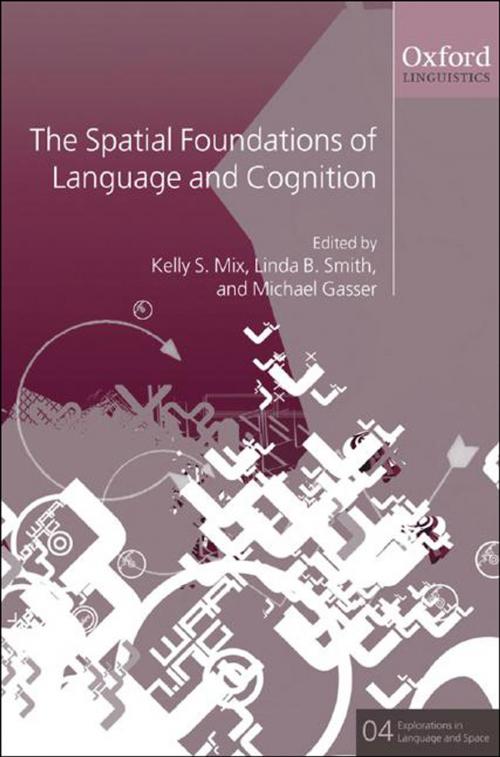The Spatial Foundations of Cognition and Language
Thinking Through Space
Nonfiction, Reference & Language, Language Arts, Linguistics, Religion & Spirituality, Philosophy| Author: | ISBN: | 9780191609565 | |
| Publisher: | OUP Oxford | Publication: | December 24, 2009 |
| Imprint: | OUP Oxford | Language: | English |
| Author: | |
| ISBN: | 9780191609565 |
| Publisher: | OUP Oxford |
| Publication: | December 24, 2009 |
| Imprint: | OUP Oxford |
| Language: | English |
This book presents recent research on the role of space as a mechanism in language use and learning. It proceeds from the notion that cognition in real time, developmental time, and over evolutionary time occurs in space, and that the physical properties of space may provide insights into basic cognitive processes, including memory, attention, action, and perception. It looks at how physical space and landmarks are used in cognitive representations and serve as the basis of human cognition in a range of core mechanisms to index memories and ground meanings that are not themselves explicitly about space. The editors have brought together experimental psychologists, computer scientists, robotocists, linguists, and researchers in child language in order to consider the nature and applications of this research and in particular its implications for understanding the processes involved in language acquisition.
This book presents recent research on the role of space as a mechanism in language use and learning. It proceeds from the notion that cognition in real time, developmental time, and over evolutionary time occurs in space, and that the physical properties of space may provide insights into basic cognitive processes, including memory, attention, action, and perception. It looks at how physical space and landmarks are used in cognitive representations and serve as the basis of human cognition in a range of core mechanisms to index memories and ground meanings that are not themselves explicitly about space. The editors have brought together experimental psychologists, computer scientists, robotocists, linguists, and researchers in child language in order to consider the nature and applications of this research and in particular its implications for understanding the processes involved in language acquisition.















